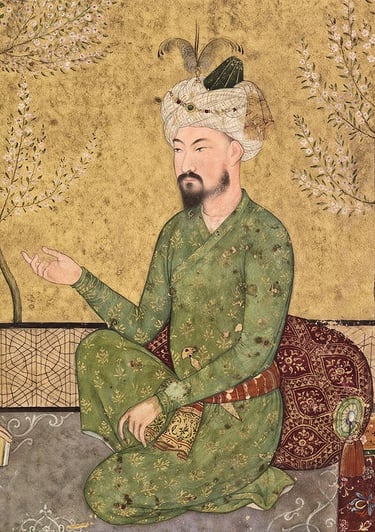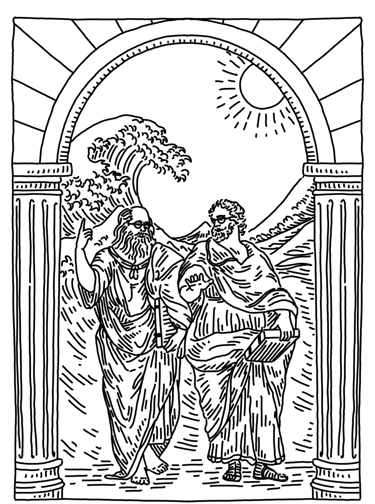Afghanistan : Further Reading in Literature
Following a few discoveries, let us extend our journey through Afghanistan.
6/22/2025


A miniature portraying Babur, founder of the Mughal Empire.
One book leads to another...
As I write these lines, I have just finished reading Si l’Afghanistan m’était conté (If Afghanistan Was Told To Me) by Alain Coppolani. I cannot emphasize enough how highly I regard this book, which has led me to expand my original roadmap. It is divided into seven sections:
History
Territory and Society (in which my friends in comparative law will find particularly interesting discussions on Afghan law, Pashtun customary law, and Islamic law)
Political System since 1919
Religion
Contemporary Afghanistan on the International Stage
Economy
Culture
This work is brimming with information and detail. Virtually every aspect of life in Afghanistan is explored and explained, both from the perspective of political structures and everyday life. You couldn't ask for a better way to discover a country. I sincerely hope to find more books like this for the upcoming destinations. I can only highly recommend it.
I particularly appreciated the nuanced analysis of the entanglement of various value systems in Afghanistan—especially the intersections of Sunni and Shia Islam, the customs of the different ethnic groups, and political power. The way historical references are clarified and their impact on popular culture explained is also very valuable. One notable example is the story of Malalaï of Maiwand (Si l’Afghanistan m’était conté, p. 33).
Malalaï was a young Pashtun girl who entered legend for her heroism during the Second Anglo-Afghan War. During the Battle of Maiwand, the Afghans were losing ground to artillery and beginning to abandon the fight. At that moment, Malalaï grabbed a flag and ran onto the battlefield shouting in Pashto: “If you do not fall at the Battle of Maiwand, by God, you will be remembered as a symbol of shame!”
Galvanized by her courage, the Afghan fighters rallied and won the battle—Malalaï losing her life in the process.
Since then, Malalaï has become a historical symbol of bravery, and her name is widely used in Afghanistan and Pashto-speaking regions.
Given the scope of the book, it’s no surprise that Alain Coppolani also discusses Afghan literature. Poetry has been a tradition there for over a millennium, although the oldest works remain largely untranslated into French. Contemporary literature, however, is somewhat more accessible. One name in particular stood out to me: Sayd Bahodine Majrouh. Though ethnically Pashtun, Majrouh wrote in Dari. He was a poet, philosopher, and folklorist, politically active especially in the preservation of Afghan culture. He was assassinated in 1988 for political reasons (reading Si l’Afghanistan m’était conté helps clarify the political context surrounding his murder).
His major work, Ego-Monstre (translated Le Voyageur de Minuit in French, The Midnight Traveler) , published in 1973 but revised until his death in 1988, is a denunciation of tyranny. It earned him the enmity of the Soviet occupiers (who invaded in 1979), the Soviet-aligned communist government, and the resistance fighters alike. This opposition eventually cost him his life in 1988. This work must be read.
Two of his other writings also draw my attention:
Le suicide et le chant (translated in English Songs of Love and War: Afghan Women's Poetry), dedicated to the popular poetry of Pashtun women. Such a literary heritage must not remain unknown. I’m glad I managed to find this book, especially since I was rather pessimistic about its availability at first.
Rire avec Dieu, Aphorismes et contes soufis (Laughing with God: Aphorisms and Sufi Tales), to explore Sufism (the esoteric branch of Islam) more directly.
Homeira Qaderi also caught my attention. A doctor in Persian literature, she managed to avoid the Taliban-imposed restrictions on education and received the Malalaï Medal, a high civilian honor recognizing her courage and her advocacy for Afghan women’s rights. One of her works is available in French: Danser dans la mosquée (Dancing in the Mosque), published in 2020.
